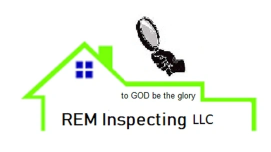Home Inspection Frequently Asked Questions (FAQs)
What does a home inspection include?
Why do I need a home inspection?
Do I have to be present during the inspection?
How long does a inspection take?
Why can’t I do the inspection myself?
Can a house fail a home inspection?
What if the home inspection reveals problems?
If the house is in good condition, does it still need an inspection?
Are Wisconsin home inspectors regulated or licensed?
******************************************************************************************************
back to top
1. What is a home inspection?
A home inspection is an objective visual examination of the physical structure and systems of a house, from the roof to the foundation.
2. What does a home inspection include?
The standard home inspector’s report will cover the condition of the home’s heating system, central air conditioning system (temperature permitting), interior plumbing and electrical systems, the roof, attic and visible insulation, walls, ceilings, floors, windows and doors, the foundation, basement and structural components. A home inspection can include a well or septic inspection as well. These are specific inspections by a licensed inspector, for an additional fee.
3. Why do I need a home inspection?
Buying a home could be the largest single investment you will ever make. To minimize unpleasant surprises and unexpected difficulties, you will want to learn as much as you can about the newly constructed or existing house before you buy it. A home inspection may identify the need for major repairs or build oversights, as well as the need for maintenance to keep your new home in good shape. After the inspection, you will know more about the house, which will allow you to make decisions with confidence.
If you already are a homeowner, a home inspection can identify potential problems and suggest preventive measures that might help you avoid costly future repairs. If you are planning to sell your home, a home inspection can give you the opportunity to make repairs that will put the house in better selling condition.
4. When do I call for an inspector?
Typically, an inspector is contacted immediately after the contract or purchase agreement has been signed. Before you sign, be sure there is an inspection clause in the sales contract, making your final purchase obligation contingent on the findings of a professional inspection. This clause should specify the terms and conditions to which both the buyer and seller are obligated.
5. What does an inspection cost?
The inspection fee varies with the size and type of building being inspected. The average inspection cost is in the $ 300.00 to $ 500.00 range. Additional inspections, like well, septic, or radon, if requested, are done at an additional fee.
6. Do I have to be present during the inspection?
While it is not required that you be present during the inspection, it is highly recommended. You will be able to observe the inspector and ask questions as you learn about the condition of the building and how to maintain it.
7. How long does an inspection take?
Depending on the size and condition of the property, a thorough inspection will take two or more hours. Ideally, you will accompany your inspector at the end of the inspection during a consultation time so that you will have visual reinforcement of the written report.
8. Why can’t I do the inspection myself?
Even the most experienced homeowner lacks the knowledge and expertise of a professional inspector. An inspector is familiar with the elements of construction, proper installation, maintenance and safety. They know how the systems and components are intended to function together, as well as why they fail.
9. Is there a contract to sign?
Yes. Every inspection requires a Home Inspection Agreement Form to be signed, which explains what will and will not be inspected.
10. Can a house fail a home inspection?
No. A professional home inspection is an examination of the current condition of a house. It is not an appraisal, which determines market value. It is not a municipal inspection, which verifies local code compliance. A home inspector, therefore, will not pass or fail the house, but rather describe its physical condition and indicate what components and systems may need major repair or replacement, if any.
11. What if the inspection reveals problems?
No house is perfect. If the inspector identifies problems, it doesn’t mean you should or shouldn’t buy the house. It only means that you will know in advance what to expect. If your budget is tight, or you don’t want to become involved in future repair work, this information will be important to you. If major problems are found, a seller may agree to make those repairs.
12. If the house is in good condition, does it still need an inspection?
Definitely. Now you can complete your home purchase with confidence. You have learned additional information about your new home from the inspector’s written report and will have that information for future reference.
13. What areas do we serve?
We serves all of Polk, Barron, Burnett, Washburn, St. Croix and Dunn counties in Wisconsin, and other areas are served within the state upon request.
14. Are Wisconsin home inspectors regulated or licensed?
Yes. Since 1998 Wisconsin requires all home inspectors to be licensed. They are required to have continuing education credits every two years to ensure that the customer receives a professional inspection.
